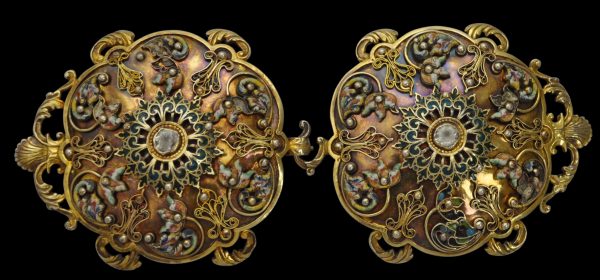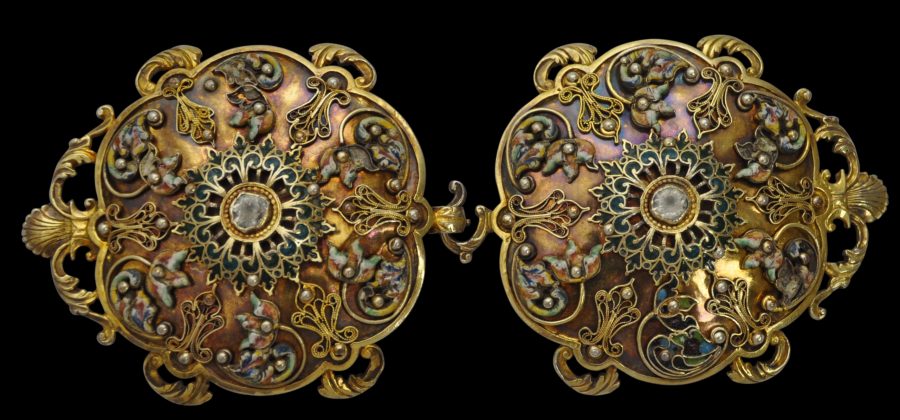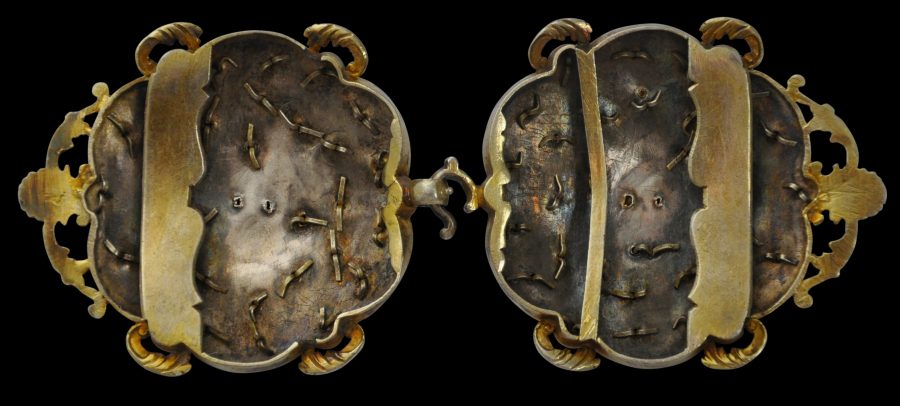This very rare, beautiful and lavishly-decorated, two-part woman’s belt buckle or clasp is from the Ottoman Cyprus. It is of gilded or gold-plated silver with applied gilded silver filigree, fields of polychrome enamel and a central faceted glass or crystal stone inset in the middle of each half.
The decoration includes delicate Ottoman-inspired tulip blooms, coloured with cream, pink and blue enamel.
The buckle most probably is the product of an Armenian silver and goldsmith and enameller operating in Nicosia. The Ottoman rulers recruited thousands of Armenian craftsmen who migrated to the island after their conquest in 1570 and there has been an Armenian community on Cyprus ever since.
See a related example in the Victoria & Albert Museum. The manufacture of such buckles or clasps of this type died out by the 19th century and so most are attributable to the 18th century.
A related Armenian-Ottoman gilded silver bowl with enamel work is illustrated in Hassiotis et al (2010, p. 151).
The traditional dress of Ottoman-influenced people often incorporated large and showy buckles. Ottoman empire rulers and warriors wore belts and elaborate, over-sized buckles as symbols of their power and rank. The fashion for such ostentatious belts was largely over by the mid-19th century.
The example here is particularly pleasing with its patina. There are losses to the enamel work here and there. There are no losses to the silver or filigree. There are no obvious maker’s or assay marks.
Very few examples of this type of buckle are known outside museums.
For examples of Ottoman buckles, see lot 298, Sotheby’s London, ‘Arts of the Islamic World’, October 23, 2019.
References
Hassiotis, I.K., et al., Aspects of Armenian Art: The Kalfayan Collection, Museum of Byzantine Culture, 2010.
Jane Perry, pers. comm., London, 2024.




